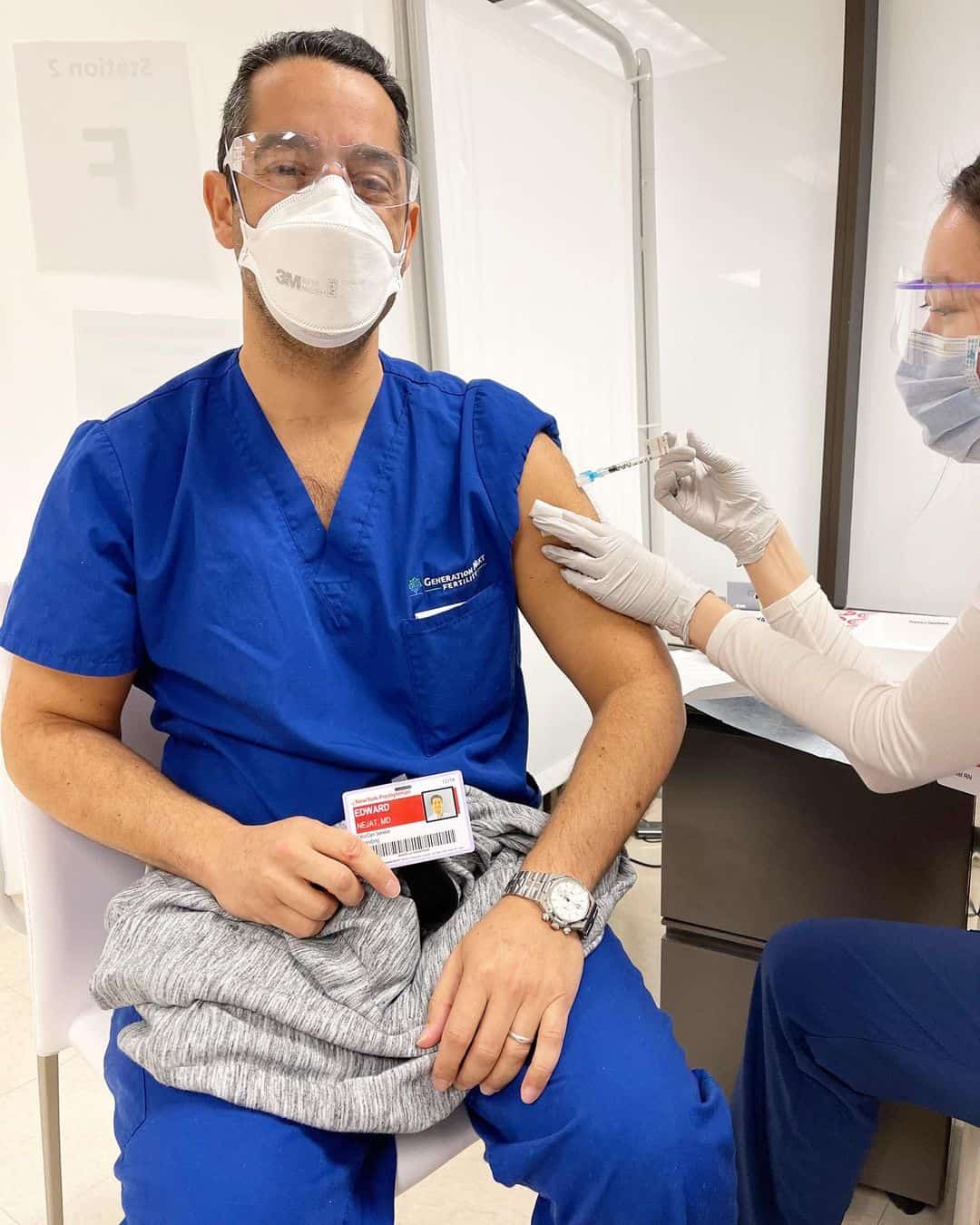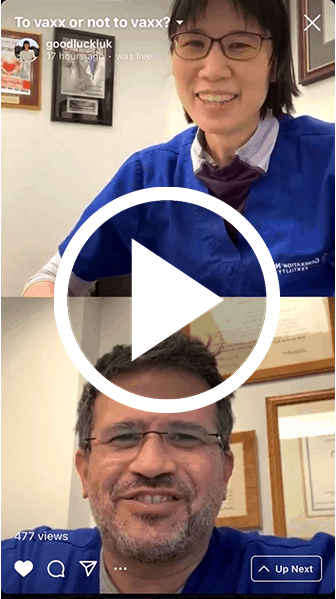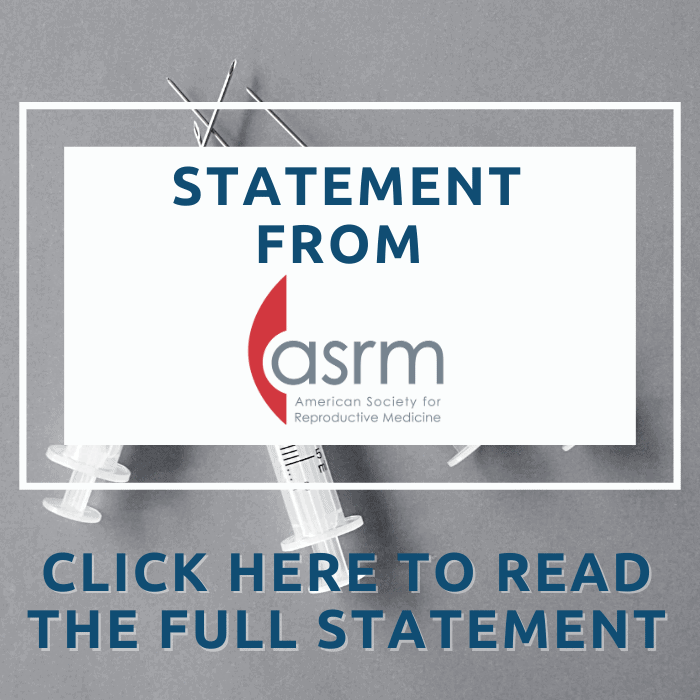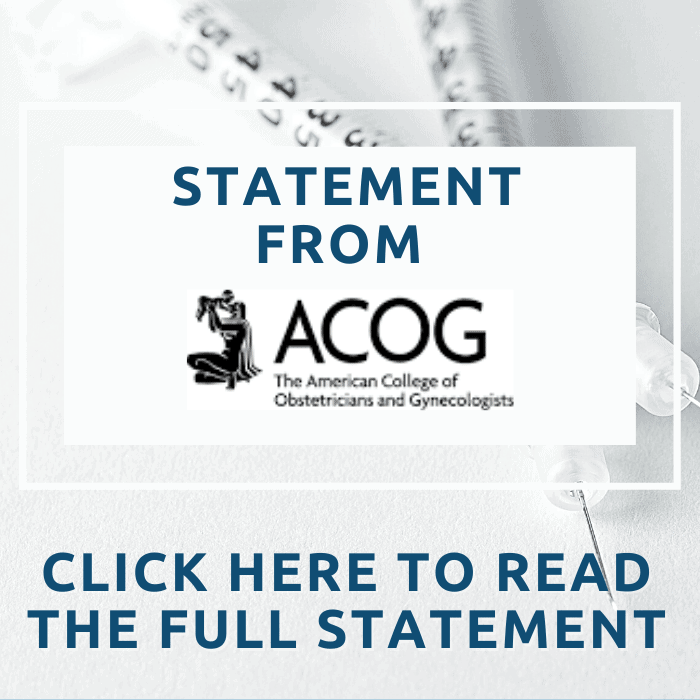Please Get The Vaccine
developmental toxicity study where female rats were intramuscularly administered with the vaccine BNT162b2 prior to mating and during gestation.
For more information, please see the statements from ASRM and ACOG below.

For More Information, Please Watch Our Two Part Instagram Live.

Part 2: Dr. Jesse Hade and Dr. Janelle Luk
Statement from ASRM
The Task Force does not recommend withholding the vaccine from patients who are planning to conceive, who are currently pregnant, or who are lactating (1,2,3). These recommendations are in line with those of the Advisory Committee for Immunization Practices (ACIP) of the U.S. Centers for Disease Prevention and Control (CDC), the American College of Obstetricians and Gynecologists (ACOG), and the Society for Maternal-Fetal Medicine (SMFM). • Patients undergoing fertility treatment and pregnant patients should be encouraged to receive vaccination based on eligibility criteria. Since the vaccine is not a live virus, there is no reason to delay pregnancy attempts because of vaccination administration or to defer treatment until the second dose has been administered
A shared decision-making model between patients and providers should be used when considering vaccination and should take into consideration the ethical principles of autonomy, beneficence, and non-maleficence. Consideration of local COVID-19 transmission and risk of acquisition, personal risk of contracting COVID-19, risks of COVID-19 to the patient and potential risksto a fetus, efficacy ofthe vaccine and known side effects, and the lack of data about the vaccine during pregnancy should all be taken into consideration as patients make decisions regarding vaccination. Some individuals may elect to defer conception attempts until both doses of vaccine have been administered
Recent studies have suggested that pregnancy is a risk factor for severe COVID-19 disease (4-8). Furthermore, many women who are pregnant or contemplating pregnancy have additional risk factors such as obesity, hypertension or diabetes which may further increase the chance of severe disease from COVID-19 infection. These considerations should be included in decisions regarding vaccination
Statement from ACOG
ACOG recommends that COVID-19 vaccines should not be withheld from pregnant individuals who meet criteria for vaccination based on ACIP-recommended priority groups.
COVID-19 vaccines should be offered to lactating individuals similar to non-lactating individuals when they meet criteria for receipt of the vaccine based on prioritization groups outlined by the ACIP.
Individuals considering a COVID-19 vaccine should have access to available information about the safety and efficacy of the vaccine, including information about data that are not available. A conversation between the patient and their clinical team may assist with decisions regarding the use of vaccines approved under EUA for the prevention of COVID-19 by pregnant patients. Important considerations include:
-
- the level of activity of the virus in the community
- the potential efficacy of the vaccine
- the risk and potential severity of maternal disease, including the effects of disease on the fetus and newborn
- the safety of the vaccine for the pregnant patient and the fetus.
While a conversation with a clinician may be helpful, it should not be required prior to vaccination, as this may cause unnecessary barriers to access.





